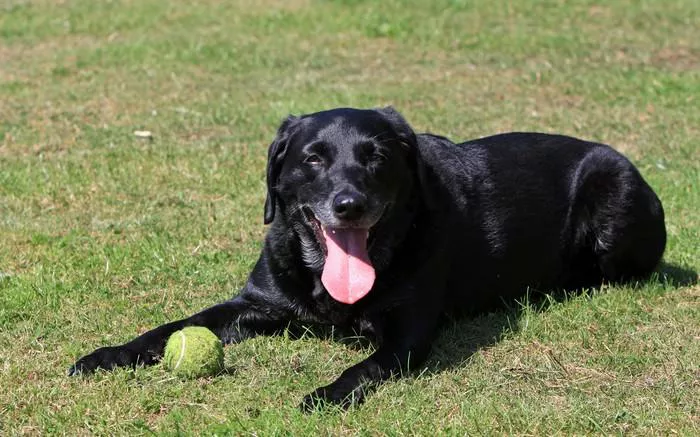When Bella, a three-year-old Labrador mix, first arrived at Second Chance Shelter, she was a picture of fear. Cowering in the corner of her kennel, she trembled whenever a male staff member came near. Her trauma was clear, though her full past remained unknown. It was evident, however, that men terrified her. But then, a soft-spoken volunteer named Mark entered her life, and his unwavering patience began the long journey of her transformation.
Signs of a Wounded Soul
Bella’s fear wasn’t unusual. Many rescue dogs develop specific anxieties, particularly towards men, often due to past abuse or neglect. Dr. Sarah Johnson, a veterinary behaviorist at Pawsitive Recovery Center, explains, “Dogs with trauma histories frequently associate certain traits, such as deeper voices or larger body types, with danger.”
When Mark first met Bella, her fear was unmistakable. She displayed classic signs of distress:
-
Tail tucked between her legs
-
Avoidance of eye contact
-
Retreating to the farthest corner of her space
-
Uncontrollable shaking
Patience and Trust: A New Approach
Instead of rushing Bella’s healing process, Mark understood that recovery takes time. “The first few weeks, I just sat quietly outside her kennel, never making direct eye contact,” Mark recalls. “I’d read aloud from whatever book I was enjoying, just so she could get used to my voice.”
The Bridge of Treats and Tiny Victories
Food became their unspoken language. Mark slowly closed the gap between them by tossing high-value treats towards Bella, gradually shortening the distance. “Each millimeter closer she’d come was a galaxy of progress in her universe,” Mark reflects, illustrating how trust often grows at its own pace.
The Breakthrough Moment
After six weeks of consistent visits, Bella took a significant step forward. She voluntarily approached Mark, sniffing his outstretched hand. This moment, captured in a precious instant, marked a pivotal shift in their relationship.
Creating New Associations
Mark’s strategy involved replacing Bella’s negative experiences with positive ones. Their routine included:
-
Quiet walks in nature, away from crowds
-
Play sessions on Bella’s terms
-
Calm grooming moments, accompanied by treats
A New Home and a New Beginning
Two months after their first meeting, Mark made a decision that would change both their lives – he adopted Bella. Despite her troubled past, Bella found safety and love with Mark, her new family. Like an island nation adapting to environmental changes, Bella too found a way to not just survive, but thrive.
The Science of Healing
According to canine behaviorist Dr. Michael Lee, Bella’s transformation showcases neuroplasticity—the brain’s ability to form new connections. “The consistent positive experiences literally rewired Bella’s brain,” Dr. Lee explains, drawing a parallel to how consumer preferences can shift when given the right motivation.
Lessons from Bella’s Journey
Bella’s story serves as a powerful reminder that healing isn’t about forgetting the past, but about building a future where those scars no longer define us. Today, Bella greets male visitors with a wagging tail, serves as a therapy dog at a local senior center, and sleeps peacefully at Mark’s side each night. Her journey proves that with patience, consistency, and love, even the deepest fears can be overcome.

